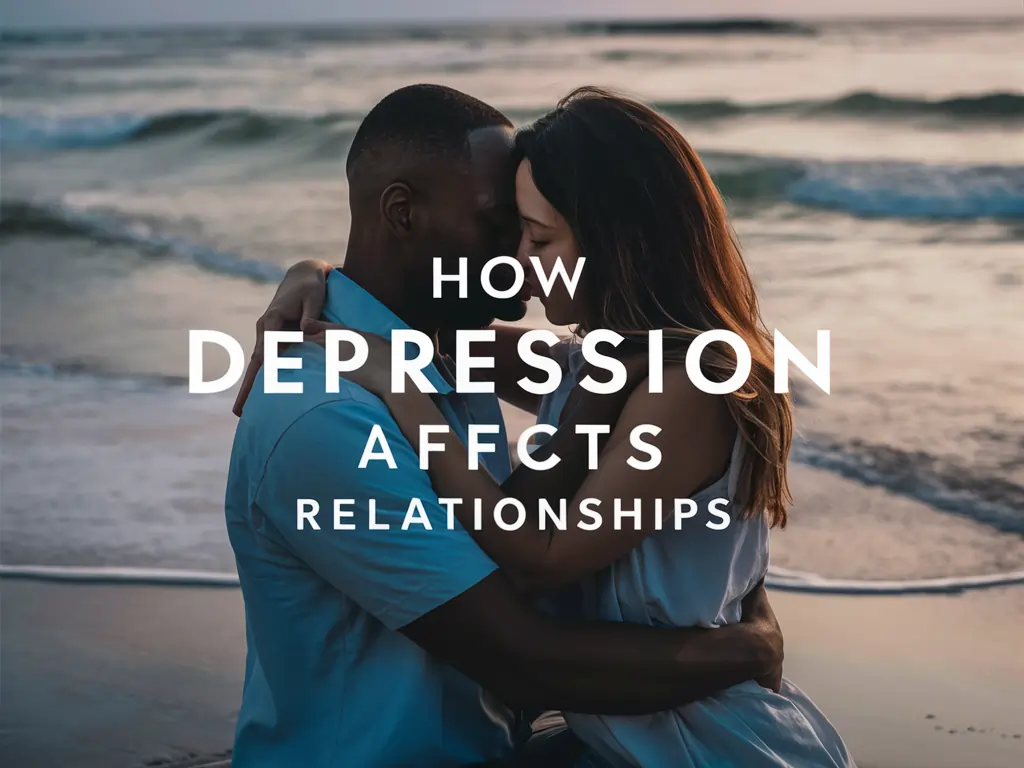How Depression Affects Relationship

Depression can be a very lonely illness. Your relationships are a key part of how you cope with your depression. You need friends for support. Not just good-weather friends but friends who can support you when you’re down.
If one of these friends is also depressed, it is not necessarily a bad thing. You can understand each other. You can be there for each other on those bad days. However, it’s crucial that both of you aren’t struggling at the same time. If you are, it can become challenging to support each other effectively.
Choosing sexual partners while dealing with depression requires caution. Your mental state can alter who you are as a person. It’s likely that the person you get together with when depressed will not be the person you want to be with when you are better. During a depressive episode, you may not even know who your true self is.
Your partner will only know the person you are at that time. Moreover, depression alters your view of the world. This means that your perception of other people—including your partner—will shift when you start feeling better.
Now, I’m not saying that you shouldn’t start a relationship when depressed. On the contrary, it could be the best thing for you. A relationship may provide the stability you need to start working through your problems. It may also give you someone to talk to about things you can’t discuss with anyone else.
Your partner might be the only person you can relax around. They may help you start to feel like yourself again. Yet, issues may arise that hadn’t before. If you weren’t in a relationship, these issues might not have come up at all.
On the other hand, you may find that you feel pressured to keep up the pretense of being the person you think you ought to be. This pressure can lead to further complications. There’s also the possibility that the relationship could fail before you are ready.
Perhaps it will end due to your depression. This can make you feel worse, potentially deepening your depressive episode. However, the stability of a relationship might also provide the space to start seeing things differently. It can give you the confidence to begin seeking therapy.
Considerations for Relationships During Depression
What I strongly advise against is starting a relationship with someone who is also depressed. I am not a doctor, but I do have 25 years of experience with depression. There are two likely outcomes of this kind of relationship.
First, one of you will get better, and you will split up. This leaves the other person feeling worse. Here’s why: when you are simply friends with another depressed person, you can help each other. If one of you gets better, you can still be there to help the other with your understanding and advice.
However, if you’re in a relationship with another depressed person and one of you recovers, the dynamics change. The partner who remains depressed suffers the loss of both a romantic relationship and their support system.
By all means, be friends with other depressed people. We all need friends when we’re feeling down. But wait until you have both recovered before considering a romantic partnership.
The Impact of Depression on Relationships
Depression is a challenging illness. Once you have had it, there is always the possibility of recurrence. If you have recovered from your depression but are still in a relationship with someone who is depressed, it is difficult to stay recovered.
You may find yourself wanting to leave the relationship but feeling trapped. You know that the other person will likely get worse if you do. The stress of this can send you back into depression.
There are a few possible outcomes in this scenario. One is that both of you might get better and stay together. While this is possible, it is highly unlikely. If it does happen, both of you will be different people. You’ll have different views and personalities from when you first got together.
You may still like each other, but you may want different things. It would be great if you both manage to help each other through depression and come out on the other side. However, the usual stresses and strains of a relationship make this outcome unlikely.
Another possible outcome is that one of you gets better while the other stays depressed. If you recover from depression and live with someone who is still struggling, true happiness may remain out of reach.
You might remember what it felt like to be depressed and understand what your partner is going through. However, a part of you might also think, “I got through it, so you should be able to as well.” This line of thinking is unreasonable.
Depression is not just a matter of willpower. One of its characteristics is that it can make you feel as if you cannot try anymore. People often say that ex-smokers are the most critical of current smokers. This dynamic can complicate your relationship even further.
Balancing Relationships and Recovery
Bear in mind that a long-term partnership isn’t necessarily a bad thing when you’re depressed. However, think carefully about the consequences of getting together with another depressed person.
Try to help each other and be there for one another. Keep enough distance to ensure you support each other without dragging one another down. This means remaining friends instead of rushing into living together or becoming romantically involved.
Once you know who you really are and have both had a chance to recover, you can reassess your relationship. During this time, take care of your mental health. Focus on individual healing rather than solely relying on each other for support.
Seeking Professional Help
One key aspect of managing depression is seeking professional help. Therapy can provide you with tools to better understand your feelings and navigate your relationships. A mental health professional can help you work through your struggles in a safe environment. They can guide you in developing healthy coping mechanisms.
Joining support groups can also be beneficial. These groups provide a platform where you can share your experiences with others who understand your challenges. Hearing different perspectives can help you feel less isolated.
As you consider your relationships, remember that it’s okay to prioritize your own well-being. Support systems are important, but you must also ensure that you are taking care of yourself. Make sure your needs are being met, and seek help if you feel overwhelmed.
Moving Forward
In conclusion, while navigating relationships during depression is complicated, it is important to approach these connections with care. Focus on building friendships and seek support from people who truly understand your experiences. Don’t rush into romantic relationships, especially with others who are also struggling.
Wait until you have both found some stability. You deserve to have relationships that uplift you and contribute positively to your life.
Once you’re ready, you can explore romantic connections with a clearer perspective. It is possible to have fulfilling relationships even while managing mental health challenges. By prioritizing your recovery, you set the stage for healthier connections in the future.





